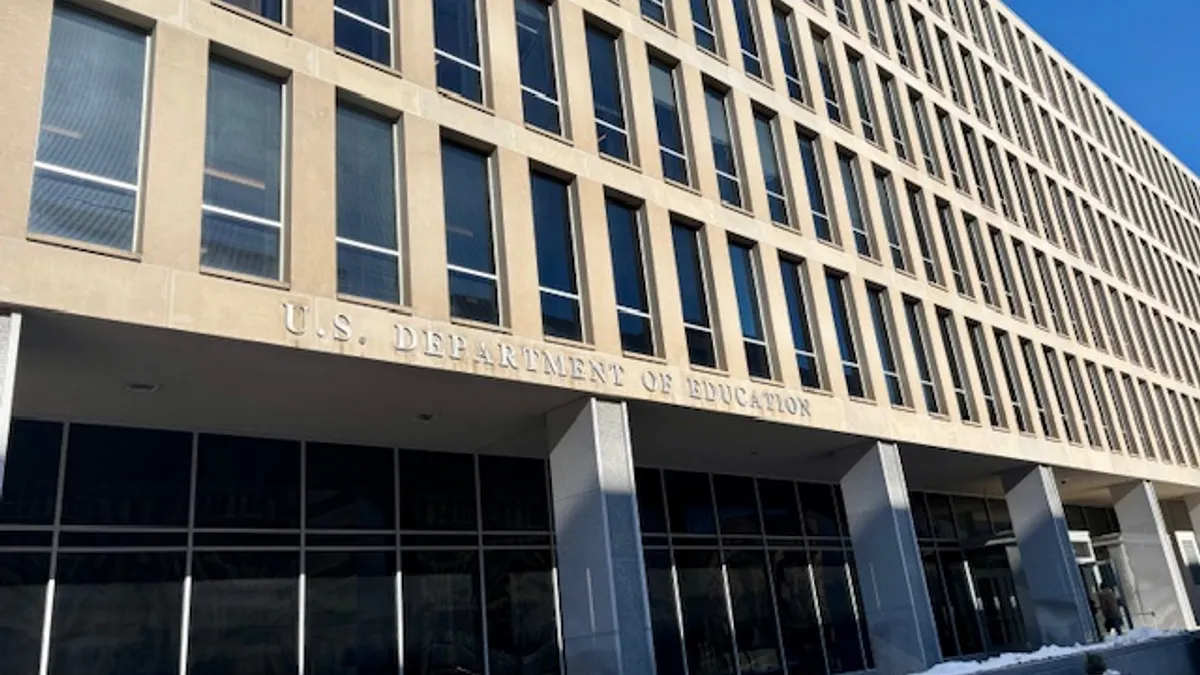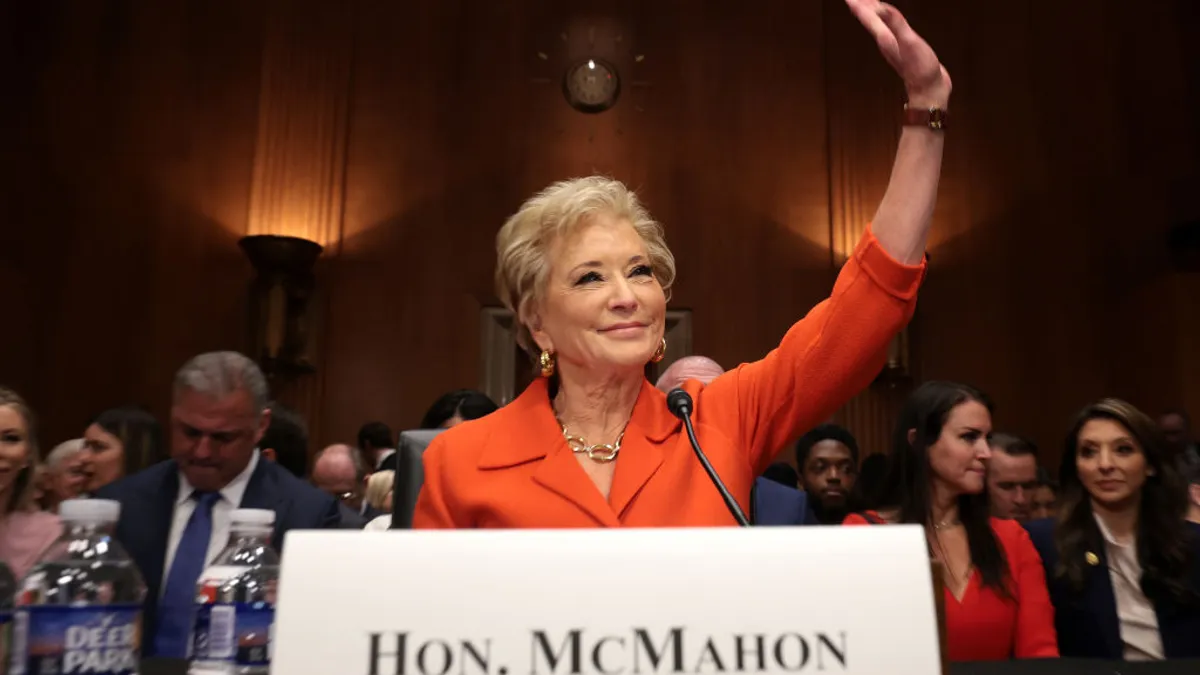The rapid pace of the new Trump administration's efforts to abolish the U.S. Department of Education has caught many student advocates off guard and on the defensive while bringing praise from those supportive of less federal bureaucracy and more local control.
No specific proposal has been revealed publicly. But since President Donald Trump was inaugurated on Jan. 20, a series of executive orders restricting Education Department activities, a freeze on federal funding, and news reports of upcoming executive action to dismantle the department point to a possibility of a much smaller agency footprint.
On the campaign trail last year, Trump promised that if elected, one of his early priorities would be “closing up” the Education Department to send “all education and education work and needs back to the states.”
Policy experts point to the fact that eliminating the Education Department would require approval from Congress, in this case an often lengthy process needing a supermajority of votes from at least 60 senators. Bills to close the 45-year-old department have been filed in at least the last three congressional sessions, but they never went far. In 2023, the House rejected an amendment to another education bill that would have shut down the agency.
Last week, Rep. Thomas Massie, R- Ky., reintroduced a bill calling for the department's termination on Dec. 31, 2026.
"States and local communities are best positioned to shape curricula that meet the needs of their students," Massie said in a statement. "Schools should be accountable. Parents have the right to choose the most appropriate educational opportunity for their children, including home school, public school, or private school."
Public school supporters point out that the federal Education Department doesn't dictate school curriculum, saying that task falls under the governance of states and local school systems.
Trump's choice for U.S. education secretary — former World Wrestling Entertainment president and CEO Linda McMahon — has not yet had her nomination hearing in front of the Senate Health, Education, Labor and Pensions Committee. The holdup is due to the required vetting of the nominee's paperwork to address any potential conflicts of interest, according to a Senate aide.
And while Trump can't close the Education Department through executive action, the more likely scenario is a succession of efforts to chip away at its authority through budget cuts and restructuring, education finance and policy experts say.
The Education Department in FY 2024 employed about 4,100 people whose salaries and benefits total $2.7 billion. The total Education Department budget that fiscal year was $79 billion. The Department of Government Efficiency, a temporary agency led by Tesla owner Elon Musk, is working at the Education Department on cost-saving measures, according to the Washington Post.
On Friday, the Education Department announced it had canceled four of its contracts related to diversity, equity and inclusion efforts, saving nearly $3.9 million. DOGE, which opponents say is operating with unprecedented access to government systems, is also examining spending practices at other federal agencies.
Musk on Monday wrote on X that Trump "will succeed" in closing the Education Department. News reports are also citing agency staffers who worked on DEI efforts being put on paid administrative leave.
In a statement Friday, Becky Pringle, president of the National Education Association, the nation's largest teachers union, said efforts to abolish the Education Department would hurt students in both K-12 schools and colleges.
"If it became a reality, Trump’s power grab would steal resources for our most vulnerable students, explode class sizes, cut job training programs, make higher education more expensive and out of reach for middle class families, take away special education services for students with disabilities, and gut student civil rights protections," Pringle said. "Americans did not vote for, and do not support, ending the federal government’s commitment to ensuring equal educational opportunities for every child."
On Tuesday, Pringle joined U.S. Sen Chris Van Hollen, D-Md., and others for a rally for public education on Capitol Hill in Washington, D.C. Van Hollen recently reintroduced a bill to fully fund Title I for low-income schools as well as the Individuals with Disabilities Education Act.
— Reclaim Our Schools (@ReclaimOurSchls) February 4, 2025
Other public school supporters said they are also preparing to defend the work of the Education Department.
Blair Wriston, senior manager of government affairs at nonprofit EdTrust, said there are key functions in the agency that can't be discontinued through executive orders. Wriston said he would "hope and expect" that Congress, which controls the power of the purse, "will push back if there is an attempt to do something illegal.”
But there is already evidence of efforts to erode department activities through staff reductions and policy changes.
"I think it is almost assuredly the case that we're going to see a deliberate, intentional effort to gut the agency from within," Wriston said. What this means is that "students and families who have historically been underserved "are unfortunately going to suffer because they won't have an effective watchdog at ED who is ensuring that their rights are protected," he said.
























